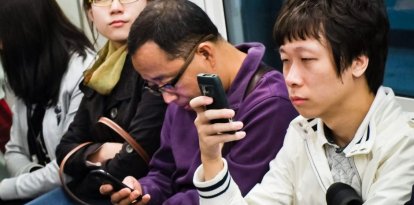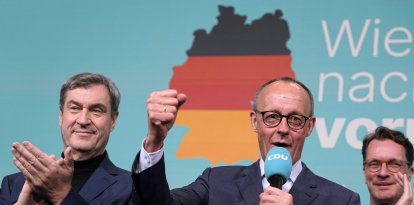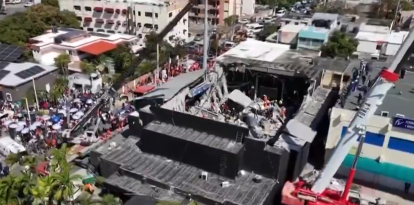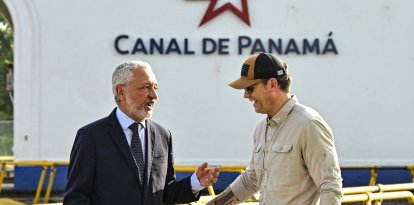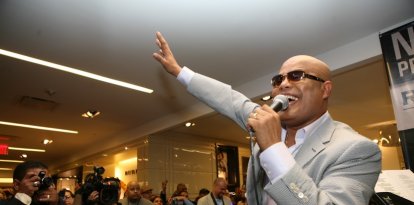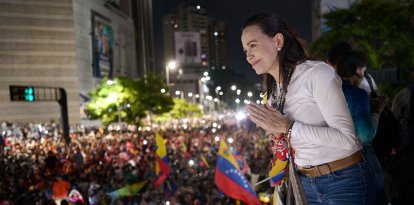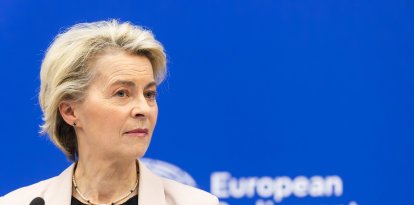Telefónica fired its CEO in Venezuela after the DOJ fined the company and uncovered a bribery scheme
The Venezuelan subsidiary of the Spanish company, with state participation, is at the center of a controversy involving irregularities linked to Nicolás Maduro's regime.

Telefónica's headquarters in Spain
Spanish telecommunications company Telefónica fired its CEO in Venezuela as part of the settlement with the DOJ following a bribery case involving Nicolás Maduro's regime. This information was first reported by the Spanish media outlet El Confidencial.
The news about the case came to light last Friday, when the DOJ announced an $85 million settlement with Telefónica. The agreement was finalized just hours after an indictment against Telefónica was officially filed in federal court in the Southern District of New York.
According to the DOJ, the complaint accuses Telefónica of conspiring to violate the anti-bribery provisions of the Foreign Corrupt Practices Act (FCPA). A statement from the U.S. Attorney's Office details that Telefónica Venezolana paid bribes to Venezuelan government officials in order to participate in a government auction that allowed it to exchange Venezuelan bolivars for U.S. dollars.
To conceal the elicit payments, Telefónica's Venezuelan subsidiary inflated the prices of equipment purchased from two suppliers, who then paid the bribes on its behalf. In a statement, the U.S. Attorney for the Southern District of New York said that "Telefónica Venezolana chose to support a corrupt regime to circumvent the difficulties of conducting legal business in Venezuela. This office will not tolerate the use and abuse of the U.S. financial system to enrich corrupt foreign officials and those who maintain their position in the market by appeasing them."
Pedro Cortez's termination was a condition for the settlement
Pedro Cortez was the top executive of Telefónica's Venezuelan subsidiary during the period when these irregularities occurred, between 2012 and 2018. He subsequently held several different roles within the company before leaving the company in July 2024.
According to El Confidencial, Cortez's departure from the company came as a result of the bribery case involving the Venezuelan regime. According to Spanish media reports, Telefónica had been aware since last year that the DOJ was preparing a severe penalty for the irregularities in Venezuela. To avoid further legal action, the DOJ insisted that all individuals responsible for the bribes leave Telefónica as part of the settlement.
According to internal sources quoted by the media, an internal audit cleared the company's top executives—César Alierta, then president of Telefónica; Álvarez-Pallete, the CEO; and Ángel Vilá, director of Corporate Finance—of any responsibility. The same sources indicated that the bribery scheme was confined to the Venezuelan subsidiary.
Telefónica in Venezuela
This is not the first scandal to affect Telefónica in Venezuela. In 2022, several human rights organizations accused the company of allowing Nicolás Maduro's regime to intercept the private communications of over 1 million Venezuelans
These interceptions primarily targeted political opponents, suspected political opponents, and their families or personal connections. In total volume, they are believed to have affected around 20% of the telephone or internet lines in the country. The organizations making these allegations cite the company's own transparency report for that year as supporting evidence.
The company claimed that the phone tapping was carried out in response to requests from what it considered the relevant authorities in Venezuela. However, the scale of the interceptions is vast and unmatched by similar actions in other countries in the region, and they were conducted without any judicial authorization.
Telefónica, a partially state-owned company
In 1945, during Francisco Franco's fourth government, the Spanish state acquired 80% of Telefónica's shares, making it a state-owned enterprise. Government control remained absolute until the liberalization reforms of the 1980s and early 2000s.
In 2024, under the government of Pedro Sánchez, the Spanish state regained a 10% stake in Telefónica, making it, alongside the Spanish banking group La Caixa, one of the company’s largest shareholders through the Sociedad Estatal de Participaciones Industriales (SEPI).
RECOMMENDATION
